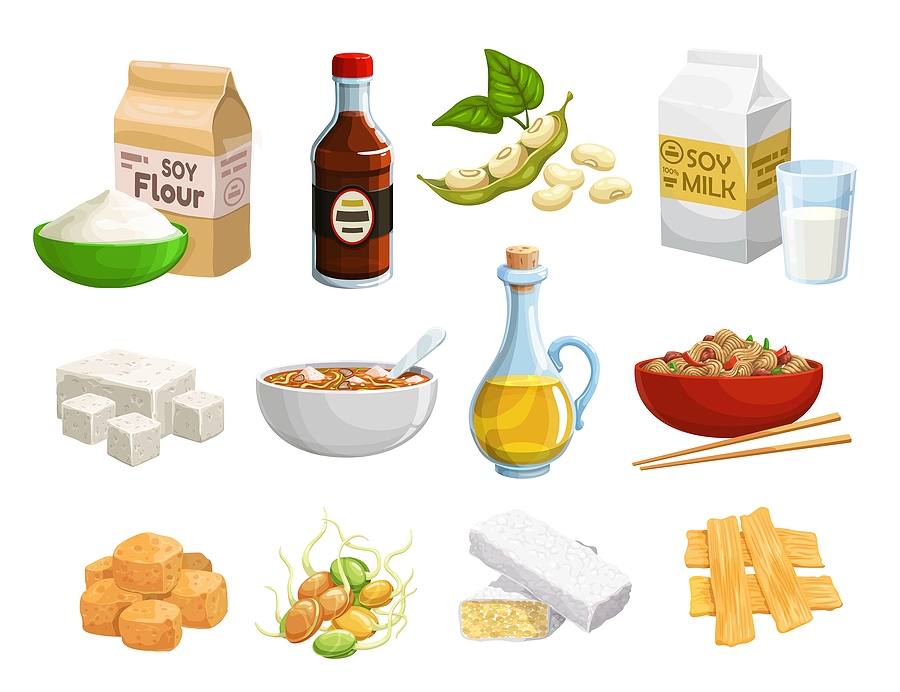Are there dangers of soy that can affect your health? Or is soy as beneficial to your health as the soy industry claims? I hope to provide a balanced view in this article.
However, I want to be upfront. I’m not a fan of soy or products that contain ingredients from soy.
I don’t like the taste of soy. And I try to steer away from processed foods that contain soy in their ingredient list. But my feelings about soy don’t justify whether there are dangers of soy.
Many vegans and vegetarians will use soy-based foods to get their protein needs. They will consume items like tofu, miso, tempeh, natto, and edamame. While many enjoy the taste of these foods, I do not.
And while I’m not a vegan or vegetarian, I get a lot of my daily protein intake from pea protein. I believe it’s a better source for protein. It is also hypoallergenic for most people and causes less stomach distress and bloating.
But I digress so let’s get back to the dangers of soy – a balanced view.
Older research in this area has produced some bad press for the soy bean industry. That soy affects your hormones, can cause trouble for your thyroid, and possibly be a contributing factor in certain forms of cancer.
So are these dangers of soy real?
When researchers first started to examine soy, they discovered that it contains estrogen-like compounds called isoflavones. The early studies in this area suggested that these isoflavones would potentially promote the growth of certain forms of cancer like breast cancer.
And since isoflavones mimic estrogen, they may lead to a hormone overload for women. And higher levels of estrogen in men to negatively impact the production of testosterone.
However, in a review of 15 studies involving men were the soy intake was limited to 70 grams of soy protein and 240 mg of soy isoflavones per day, there was no affect on free testosterone or total testosterone levels.
More recent studies have provided an even better answer to this question. And the key to these more recent studies have to do with the source of the soy:
Is the soy used in the study plant-based soy that has not been processed or processed soy compounds like isoflavones?
Recent studies that use unprocessed soy doesn’t increase the risk for breast cancer. And that it may lower the risk for gastrointestestinal cancer and have some protective benefits for men with prostate cancer.
But when the studies use soy isoflavones, then the results were not very clear. Take this study for example:
Dietary Isoflavones and Breast Cancer Risk from 2017. In the conclusion the authors make the following statement:
“It is evident that differences in the source and amount of soy isoflavones consumed by Chinese versus Chinese-American or American women can greatly impact breast cancer. The phytochemicals present in different isoflavones (e.g., genistein and daidzein) can amplify or dampen signaling pathways leading to opposing outcomes on breast cancer risk.”
Another area of concern is how soy foods can affect the thyroid. In a review of 14 studies, Loma Linda University found that soy foods do not affect thyroid function. But if your thyroid is under active, then you might need to limit your soy consumption since it can interfere with iodine absorption.
And, if you’re taking thyroid medications, then soy foods might interfere with your body’s ability to absorb your medication.
Finally, there is the controversy surrounding GMO foods. Ones that have been genetically modified. Here in the United States, more that 90% of the soy produced is genetically modified. Specifically they are modified to withstand the pesticide glyphosate used to control weeds.
Unfortunately, glyphosate has shown up in products that use these GMO soy beans.
Your best bet, if you are going to consume soy or products that contain soy, is to make sure the source of the soy is non-GMO and organically grown.
The Dangers of Soy – Conclusion
Like most things in today’s world you can find information that can be used to support both positions. In this case soy is not as dangerous to people’s health as was once suspected. And thousands of years of eating this source of protein in the Asian culture, with few health risks associated to it, should have borne this out.
However, in today’s world of overly processed foods and GMO soy, corn, and wheat there are other factors involved than eating naturally sourced soy foods.
Personally, I’m still going to stay away from soy. But if you like the taste of it, and want to make it a part of your nutritional program, then hopefully this article puts some of the dangers of soy to rest.
But like all foods, moderation is best.
If you want to read more about this topic, then I would recommend clicking on the following two links:
https://www.goodhousekeeping.com/health/diet-nutrition/a20707020/is-soy-good-or-bad-for-you/
https://www.healthline.com/nutrition/soy-good-or-bad#downsides
Blessing Lives Through Nitric Oxide Therapy!
Dan Hammer

Leave a Reply
You must be logged in to post a comment.